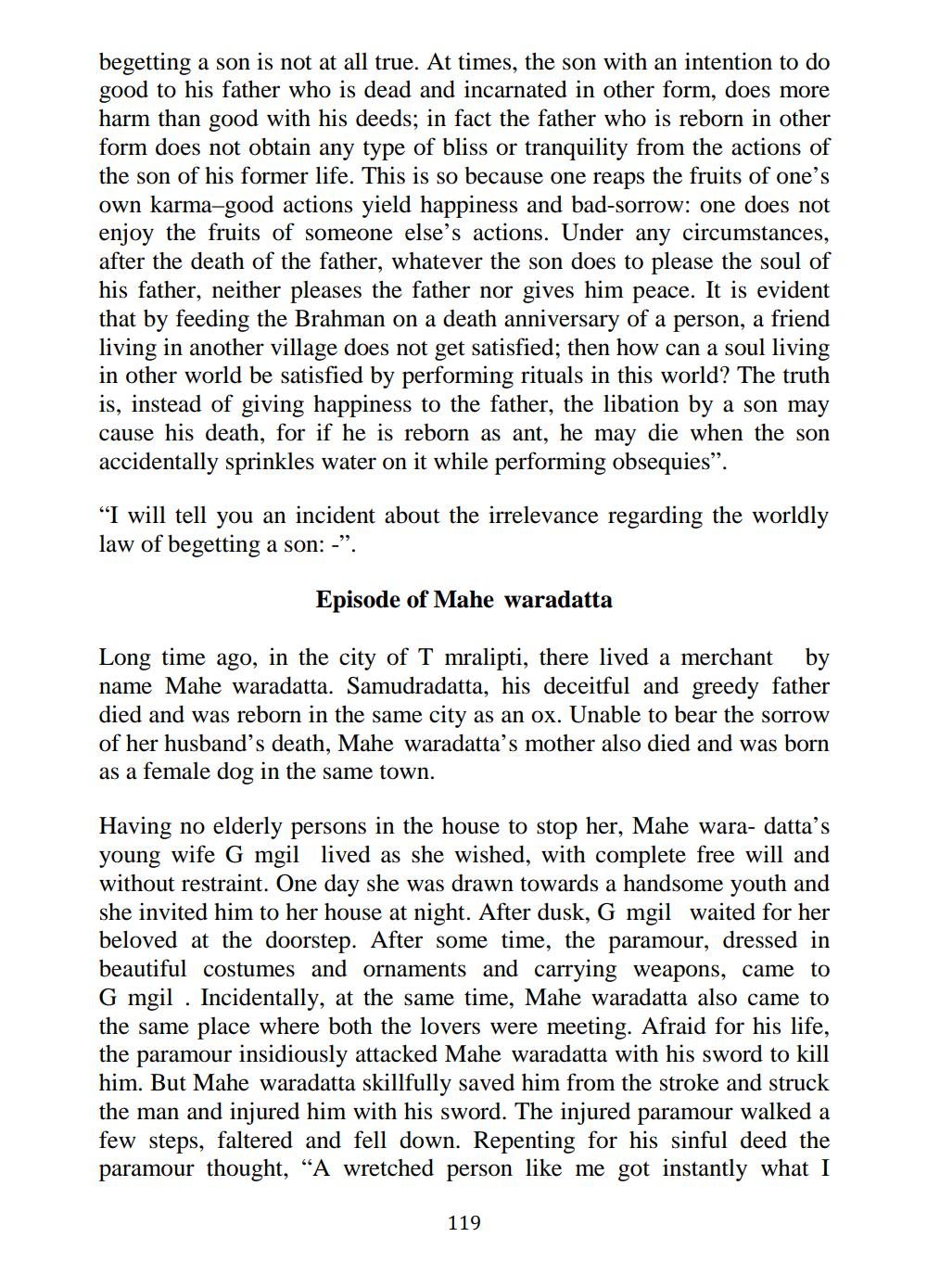________________
begetting a son is not at all true. At times, the son with an intention to do good to his father who is dead and incarnated in other form, does more harm than good with his deeds; in fact the father who is reborn in other form does not obtain any type of bliss or tranquility from the actions of the son of his former life. This is so because one reaps the fruits of one's own karma-good actions yield happiness and bad-sorrow: one does not enjoy the fruits of someone else's actions. Under any circumstances, after the death of the father, whatever the son does to please the soul of his father, neither pleases the father nor gives him peace. It is evident that by feeding the Brahman on a death anniversary of a person, a friend living in another village does not get satisfied; then how can a soul living in other world be satisfied by performing rituals in this world? The truth is, instead of giving happiness to the father, the libation by a son may cause his death, for if he is reborn as ant, he may die when the son accidentally sprinkles water on it while performing obsequies".
"I will tell you an incident about the irrelevance regarding the worldly law of begetting a son: -".
Episode of Mahe waradatta
Long time ago, in the city of T mralipti, there lived a merchant by name Mahe waradatta. Samudradatta, his deceitful and greedy father died and was reborn in the same city as an ox. Unable to bear the sorrow of her husband's death, Mahe waradatta's mother also died and was born as a female dog in the same town.
Having no elderly persons in the house to stop her, Mahe wara- datta's young wife G mgil lived as she wished, with complete free will and without restraint. One day she was drawn towards a handsome youth and she invited him to her house at night. After dusk, G mgil waited for her beloved at the doorstep. After some time, the paramour, dressed in beautiful costumes and ornaments and carrying weapons, came to G mgil. Incidentally, at the same time, Mahe waradatta also came to the same place where both the lovers were meeting. Afraid for his life, the paramour insidiously attacked Mahe waradatta with his sword to kill him. But Mahe waradatta skillfully saved him from the stroke and struck the man and injured him with his sword. The injured paramour walked a few steps, faltered and fell down. Repenting for his sinful deed the paramour thought, "A wretched person like me got instantly what I
119




